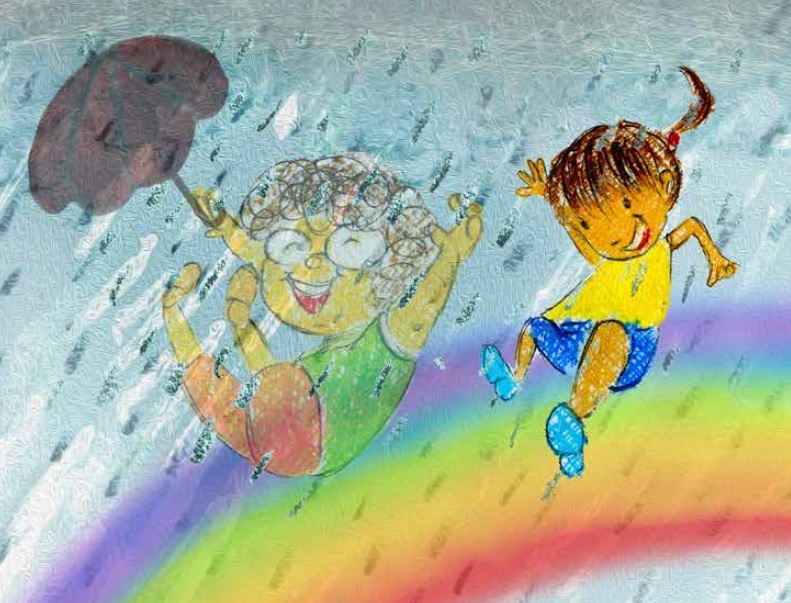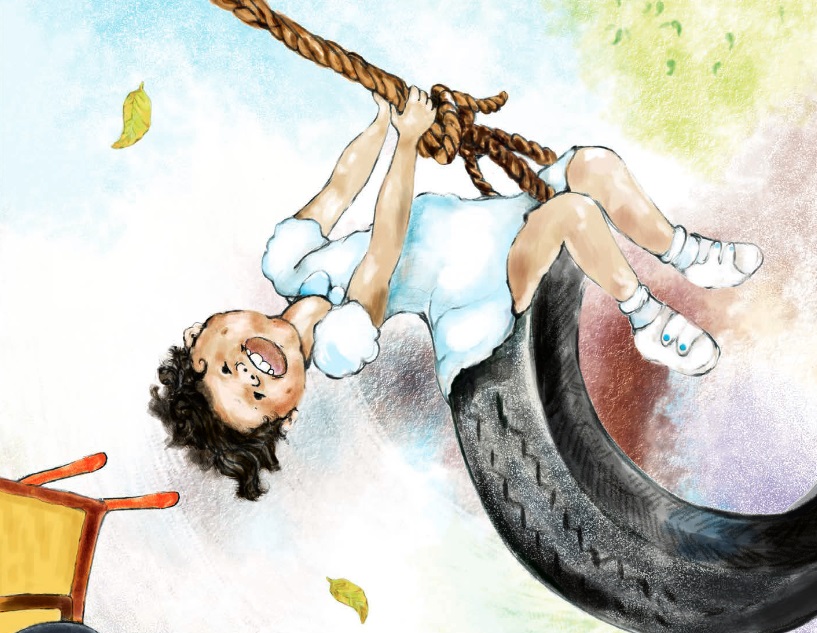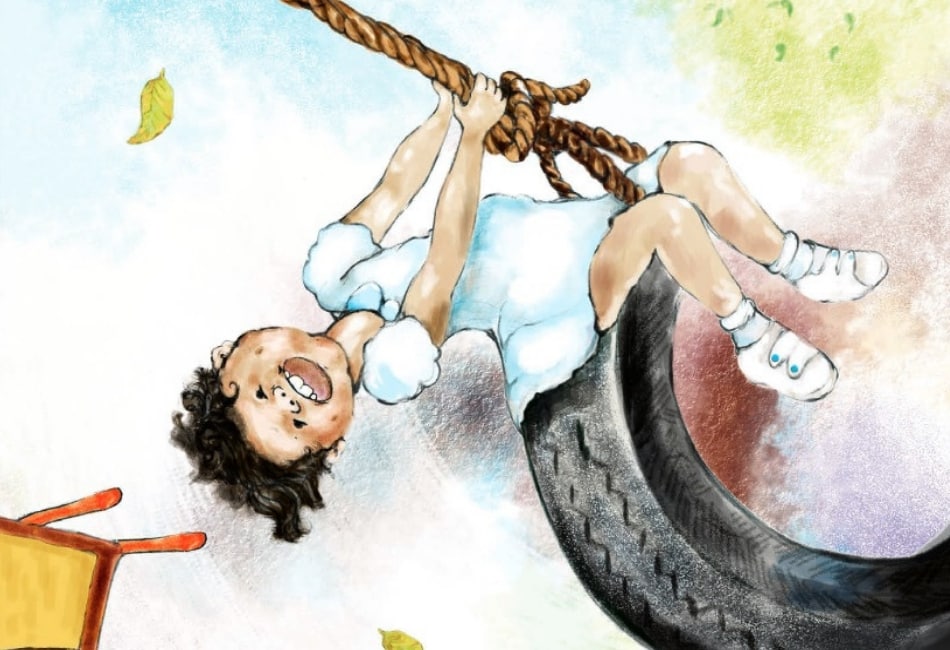What Parents Need To Know About Children’s Mental Health
- 4308 Views
- Sue Castellino
- October 9, 2018
- Expert Interviews Reading Hacks & Tips
Mental health is fast becoming part of the dinner table conversation, as it rightly should. Indian society has for years regarded mental health in a negative way, turning a blind eye to serious conditions like depression and anxiety. However, with more and more news about incidents like the Blue Whale Challenge, it’s becoming vital that parents take note of their child’s physical as well as mental health.
Since today is ‘World Mental Health’ day, we wanted to shed some light, with the help of an expert on Children’s mental health. Our expert today is Dr Chetna Duggal from the Tata Institute of Social Sciences. She is a practising psychotherapist who is also a mom of two pre-teens. Dr Chetna is also a wild-life enthusiast, avid traveller and loves spending time learning music and writing. We asked her some questions regarding children’s mental health issues – here’s her advice!

Team GetLitt: What does every child need for good mental health?
Dr Chetna Duggal: The most important thing a child needs for her/his well-being is a safe emotional environment and caring adults. Having parents and caregivers who provide a safe and nurturing environment, can be a huge protective factor. This loving and trusting relationship can provide the child with a ‘secure base’ from which they can explore the world.
A child’s beliefs about the world and about themselves are formed through their interactions with their caregivers. When parents provide encouragement and reassurance it helps bolster the child’s self-esteem.
Parents also help the child learn skills that are needed for emotional regulation, managing distress, tolerating frustration, seeking support, and so on, that are critical for the child to enjoy emotional health and well-being.
 Image from the Book – Boo! By Richa Jha – Read it HERE
Image from the Book – Boo! By Richa Jha – Read it HERE
TGL: What are the factors/ stimuli that affect a child’s healthy mental state?
DR C: There is a range of factors that affect a child’s wellbeing and mental health, both in the immediate and extended environment. The most important factors to ensure the wellbeing of a child are diet, sleep, exercise, stimulation (academic and otherwise), play, leisure and safety.
Further, if there are too many demands (academic and other performance related) on the child, if there is deprivation, criticality and/ or hostility, harsh and discouraging interactions with peers or family members, exposure to violence, abuse, neglect and trauma, it can adversely affect the child’s mental health.
Parental stress, anxiety, substance use, and/or conflict or violence in the family, could also play a role in creating distress for the child.
As children grow older, peers become important in their lives, therefore, in adolescence peer pressure, bullying, isolation, scapegoating can also affect the child’s self-image and emotional health deeply.
However, despite going through challenges, very often children are able to maintain their emotional wellbeing and achieve their goals, this strength has been termed ‘resilience’.

Image from the book Ari by Vaishali Shroff. Read it HERE
TGL: What are the major mental illnesses faced by children today?
Dr C: In terms of mental health concerns experienced by children, there could be emotional concerns such as anxiety and depression. Children may also have certain other concerns such as school refusal, oppositional behaviour, and conduct disorders. Sometimes, certain concerns present as bodily symptoms such as headaches, stomachaches, as the mind and body are connected. As children reach adolescence, other concerns related to substance use, self-harm, eating issues, challenges with body image emerge. Data tells us that 50% of the psychological concerns in individuals start before the age of 14.
TGL: What are the signs of an emerging mental illness in a child?/ What are the signs when one should seek professional help for one’s child?
Dr C: There are certain signs that may indicate the child is experiencing mental health concerns. These include difficulties in sleeping, not eating well or eating too much, not being able to concentrate, sudden drop in grades, refusing to go to school, feeling lethargic, not being interested in activities, feeling low, excessive fear or worry, being nervous about things, restlessness, preoccupation with certain things, not interacting with friends and family, being withdrawn, too much time being spent alone, or on gadgets and gaming, and so on. Parents are usually able to identify that the child is experiencing distress when they note changes in regular routine, a decline in academic performance, or sudden changes in behaviour. Often children and adolescents reach out to trusted adults and friends about thoughts of self-harm and addiction problems, these attempts to reach out need to be taken seriously.

Image from the book Catch That Cat by Tharini Vishwanath. Read it HERE
TGL: What are some simple skills we can teach our children to stay happy and experience good mental health?
Dr C: Here are a few skills that we can encourage our children to learn so they can care for their emotional wellbeing:
Taking Care of Themselves.
Sleeping and eating well, engaging in activities that they enjoy and find relaxing, exercising regularly. Taking care of oneself helps to keep the mind and body healthy and ready to deal with any challenge that comes our way.
Making Connections.
Building relationships is a huge protective factor when we are going through difficult times. Teaching children skills of empathy, care for others and other social skills can go a long way in helping them build meaningful relationships. This will help them in accepting help and support from those who care about them during times of stress. In turn, they can be available to their peers in times of need.

Image from the book Let’s Go Seeding by Neha Sumitran. Read it HERE
Develop Realistic Goals and Planning.
Encouraging children to do small things regularly, even if it seems like a small accomplishment. Making a routine and developing a plan to achieve goals. This is a skill that helps when there are too many demands that can feel overwhelming.
Nurture a Positive View of Self.
Having faith in oneself. Having conversations of those times when things went well, when the child succeeded, those moments when the child felt supported. These dialogues with an encouraging adult can help the child focus on her/his strengths and is able to remember them in challenging times.
Self-Regulating.
Counting to 10, breathing, thinking before we speak, taking a break, writing a journal, are simple strategies that parents can teach children to manage their distress in a healthy manner rather than by expressing emotions in ways that will hurt others or themselves.

Image Courtesy Cuprikorn, Flikr
Dr Chetna also suggests reading the book Wonder by R.J Palacio, with your child. It’s a story about a boy with a deformity that faces bullying in school – an issue faces by many children when they start to go to school. It teaches values of respect, acceptance and overcoming difficulties.
Our takeaway from Dr Chetna’s expert advice is to foster a safe environment of positivity and openness; plus have a sense of awareness. These factors allow your child to explore their lives from a foundation of stability, making them stronger individuals in the future.
We hope you enjoyed this informative blog and if there are issues you would like us to get an expert opinion on, do let us know in the comment section. We love hearing back from our community of super-parents, YOU!

